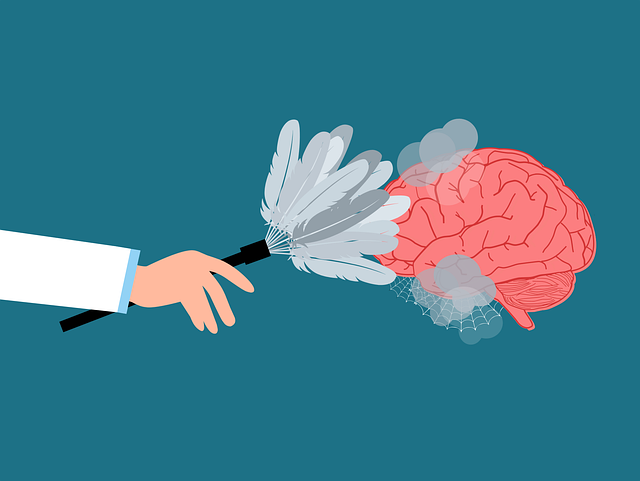Litton Cognitive Behavioral Therapy (LCBT) offers a powerful framework for building resilience through the RFM model—Resilience, Flexibility, and Mastery. By teaching evidence-based practices like Mindfulness Meditation and Communication Strategies, LCBT equips individuals to face challenges head-on, adapt to change, and navigate complex situations effectively. Regular practice strengthens emotional regulation, promotes mental toughness, and enhances overall well-being, fostering more resilient communities. Implementation requires commitment, consistency, and cultural sensitivity but can be successfully overcome with proper training.
Resilience is a vital asset in navigating life’s challenges. This article explores how Relational, Functional, and Emotional Memory (RFM) exercises, grounded in Littleton Cognitive Behavioral Therapy (LCBT) techniques, can build mental fortitude. We’ll guide you through a step-by-step implementation process, highlighting benefits and potential challenges of regular practice. By understanding RFM’s role, you’ll gain insights into enhancing resilience and fostering emotional well-being.
- Understanding RFM and Its Role in Resilience Building
- Implementing Resilience Exercises: A Step-by-Step Guide Using Littleton Cognitive Behavioral Therapy (LCBT) Techniques
- Benefits and Potential Challenges of Regular Practice
Understanding RFM and Its Role in Resilience Building

Resilience is a vital asset in navigating life’s challenges, and Littleton Cognitive Behavioral Therapy (LCBT) offers valuable tools to build and strengthen it. At its core, RFM, or Resilience, Flexibility, and Mastery, is a framework designed to enhance individuals’ ability to adapt and bounce back from adversity. This approach recognizes that resilience isn’t merely the absence of stress but rather an active process where one develops skills to manage and overcome difficult situations.
By focusing on these three dimensions, LCBT facilitates personal growth. Resilience empowers individuals to face challenges head-on, fostering a sense of control and self-efficacy. Flexibility allows for adapting to changing circumstances, while Mastery equips people with the skills to navigate complex situations effectively. Incorporating stress management techniques like Mindfulness Meditation, Communication Strategies, and other evidence-based practices can further reinforce these resilience-building exercises, ensuring individuals are equipped to handle life’s twists and turns.
Implementing Resilience Exercises: A Step-by-Step Guide Using Littleton Cognitive Behavioral Therapy (LCBT) Techniques

Implementing resilience exercises is a powerful way to build inner strength and foster adaptability in individuals or groups. Using evidence-based methods like Littleton Cognitive Behavioral Therapy (LCBT), professionals can guide participants through a structured process to enhance coping skills. Here’s a step-by-step approach to integrating these techniques:
1. Identify Goals: Begin by defining specific areas for improvement, such as self-esteem, mood management, or stress resilience. LCBT focuses on challenging negative thought patterns and behaviors, so aligning exercises with these goals ensures targeted growth.
2. Create a Safe Space: Establish an environment conducive to open discussion and exploration. Encourage participants to share their experiences while emphasizing non-judgmental listening. Building trust is essential for engaging in vulnerable conversations that underpin LCBT’s effectiveness.
3. Introduce Cognitive Restructuring: This involves identifying and modifying unhelpful thoughts and beliefs. Teach techniques like thought recording, challenging evidence, and reframing negative self-talk. For instance, helping individuals recognize and replace automatic negative thoughts with more realistic, positive alternatives boosts self-esteem and improves mood management.
4. Practice Behavioral Experiments: Encourage participants to test out their thoughts and feelings by engaging in small experiments. This could involve trying a new activity or adopting a different perspective. By experiencing the outcomes first-hand, individuals can challenge their assumptions and develop more adaptive behaviors.
5. Encourage Consistent Application: Resilience exercises should become part of daily life. Provide resources and strategies for maintaining momentum between sessions. Regular practice is key to developing lasting inner strength and fostering better mood management skills.
Benefits and Potential Challenges of Regular Practice

Regular practice of resilience-building exercises, such as those rooted in Littleton Cognitive Behavioral Therapy (LCBT), offers profound benefits for individuals and communities alike. By consistently engaging in techniques that enhance emotional regulation, participants can develop a stronger capacity to navigate life’s challenges. This improved emotional agility empowers folks to bounce back from setbacks more effectively, fostering mental toughness and overall well-being.
While the advantages are significant, implementing regular practice may present certain challenges. Incorporating resilience-focused activities into daily routines requires commitment and consistency. Additionally, tailoring these exercises to diverse populations, especially within a Community Outreach Program Implementation, demands sensitivity and cultural competency. However, with proper training and support, these hurdles can be overcome, allowing for the widespread dissemination of Mind Over Matter principles, ultimately leading to more resilient and resilient communities.
Resilience is a crucial asset in navigating life’s challenges, and implementing RFM (Resource, Strengths, and Mastery) along with Littleton Cognitive Behavioral Therapy (LCBT) techniques offers a powerful approach to building it. By following the step-by-step guide outlined in this article, individuals can effectively enhance their resilience through regular practice. The benefits are clear: improved coping mechanisms, increased self-efficacy, and better emotional regulation. However, as with any new habit, challenges may arise; thus, understanding potential hurdles and adapting practices accordingly is essential to long-term success. Embrace the journey of building resilience and reap its transformative rewards.














